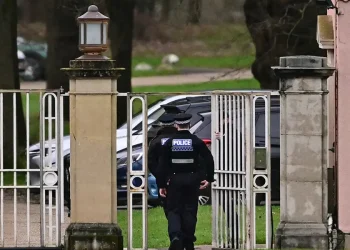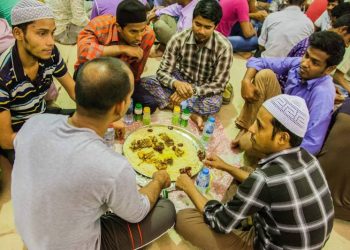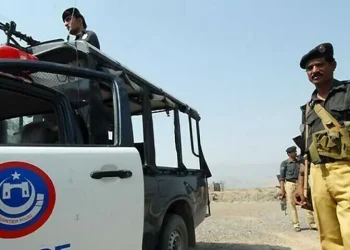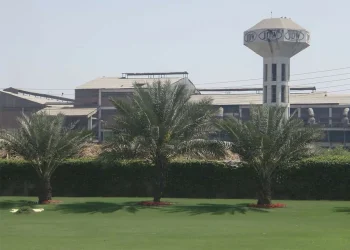Temperatures in India’s capital soared to a national record-high of 52.3°C on Wednesday, figures from the government’s weather bureau showed, as it warned of dangerous heat levels in the sprawling megacity.
The India Meteorological Department (IMD), which reported “severe heat-wave conditions,” published the temperature automatically on its website after it was recorded by a station in the Delhi suburb of Mungeshpur on Wednesday afternoon.
However, IMD meteorologist Soma Sen Roy cautioned that officers were “checking out” whether the station had recorded it correctly.
The recording not only broke the landmark 50°C measurement for the first time ever in the city, but smashed the previous national record in the desert of Rajasthan by more than one degree Celsius.
The IMD has issued a red alert health notice for Delhi, which has an estimated population of more than 30 million people.
The alert warns there is a “very high likelihood of developing heat illness and heat stroke in all ages,” with “extreme care needed for vulnerable people.”
As people sought relief from the scorching temperatures, the electricity grid groaned under a record peak power demand of 8,302 megawatts, according to official data.
Delhi city authorities on Wednesday also warned of dire water shortages and ordered teams to clamp down on wastage.
The temperature was more than 11 degrees higher than expected on the second day of intense record-breaking heat.
The previous national record was 51°C, set in 2016 in the region of Phalodi on the edge of Rajasthan’s Thar Desert.
India is no stranger to searing summer temperatures but years of scientific research have found climate change is causing heatwaves to become longer, more frequent and more intense.
People on the streets of Delhi said there was little they could to do avoid the heat.
“Everyone wants to stay indoors,” said snack-seller Roop Ram, 57, adding he struggled to sell his savoury fritters.
Ram, who lives with his wife and two sons in a cramped house, said they had a small fan but that did little to cool them down.
They were counting down until the rainy season arrives in July.
“I am not sure what else we can do to cope,” he said. “We are just waiting for the monsoon.”
Rani, 60, who uses only one name, travels by bus for two hours each morning to sell jewellery to tourists at a makeshift street stall.
“It is definitely hotter, but there is nothing we can do about it,” she said, gulping water from a bottle she brought from home.
“I try to refill the bottle from anyone around.”
‘Water scarcity’
New Delhi authorities have also warned of the risk of water shortages as the capital swelters in headache-inducing heat.
Delhi Water Minister Atishi, who only uses one name, said supplies had been halved in many areas to boost flow to “water-deficient areas.”










 American Dollar Exchange Rate
American Dollar Exchange Rate